Why is My Electric Stove Clicking?
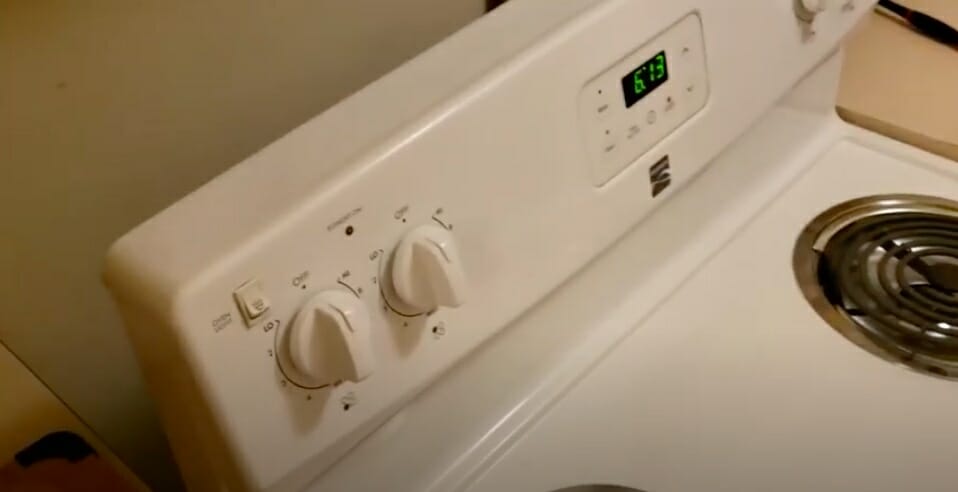
If your electric stove is clicking, it may be time to have it checked out by a professional. Here are some common reasons why stoves might be clicking and what you can do to fix them.
Due to your electric stove’s heavy workload, it sometimes shows signs of wear. One of those signs is a repetitive clicking noise while in use or after turning off.
An Electric Stove Clicking Sound Might Derive From:
- A Damaged or Clogged Spark Ignition Switch
- Issues Regarding the Igniter’s System
- An Expansion of The Stove’s Components
- Power Surges
- Damaged Burners
- Liquid Elements Stuck Inside the Burners’ System
- A Worn Top
- The Misplacing of Components While Cleaning
- Rusting
I’ll go into more detail below.
What is a Stove Made Of

Before identifying the issue, you need to familiarise yourself with the fundamental components of an electric stove.
They primarily consist of:
- Burners
- Burner caps
- Induction cooktops (mostly glass)
- Manual or digital control panel
- Drip pans
- Thermostat
- Control knobs
The electric stove’s heating elements are the burner, burner caps, cooktop, and drip pan.
You might notice a clicking sound coming from any of the above items. Bear in mind that an electric stove clicking sound might not always present a hazard. On some occasions, you may be able to fix the issue yourself.
However, consulting an appliance repair technician is a wise choice to ensure safety.
1. Spark Ignition Switch
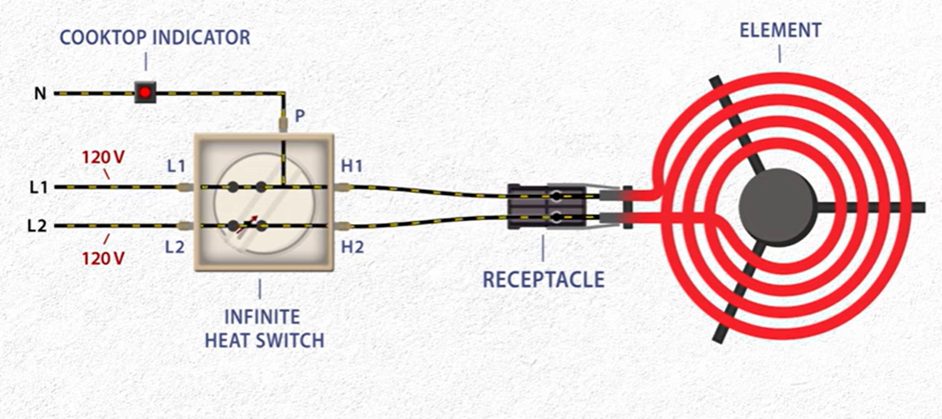
Even though most people think that the coils are the ones having an issue, it might actually be the stove igniter clicking.
Its purpose is to keep the temperature of a burner at a standard temperature by opening and closing automatically. Over time, the spark module will most likely wear, and it may produce a clicking noise.
The above can mostly happen to old or overused electric stoves.
2. Ignition System
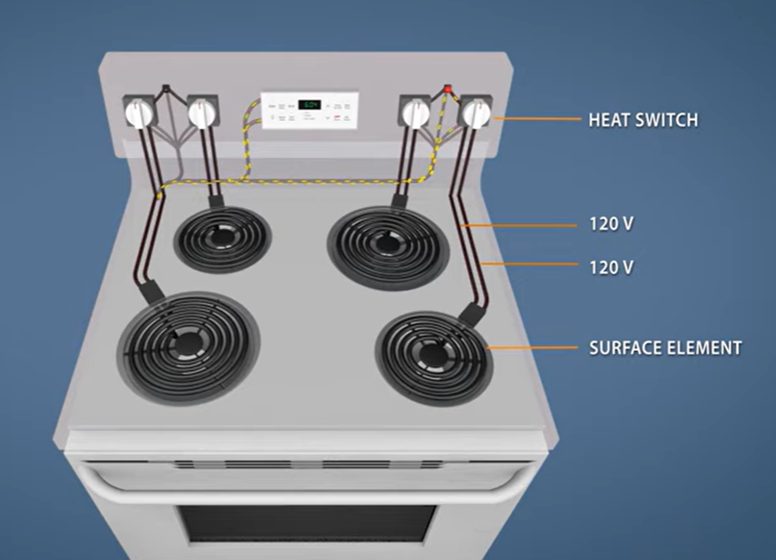
It is not uncommon for someone to drop food scraps on the stove while cooking by accident.
No issue will arise if all scraps are cleaned up right away and carefully.
However, if some of the scraps fall into one of the coils, they might get clogged. In such a case, the substances stuck in the burners can prevent the ignition system from working properly.
To fix the issue, you can remove the food scraps and other dirt.
3. Expansion of the Stove’s Components
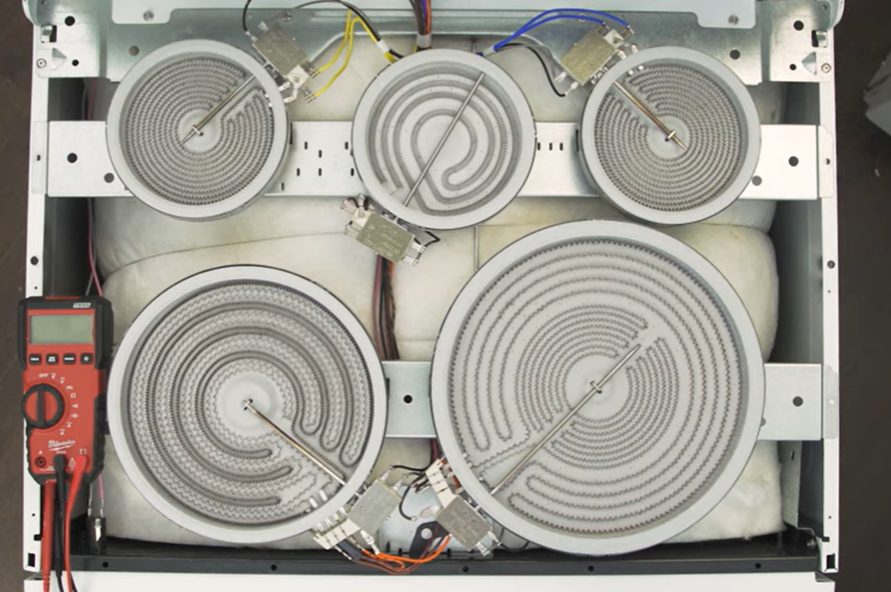
The metallic parts of the stove will dilate once exposed to heat.
Electric stoves that are in mint condition will confine heat in the central elements of their system. Older stoves’ ability to keep the heat in some specific parts gradually declines. That means that other units of the stove undergo thermal expansion, which can produce a clicking noise.
In this case, the best choice is to replace the stove.
4. Power Surges
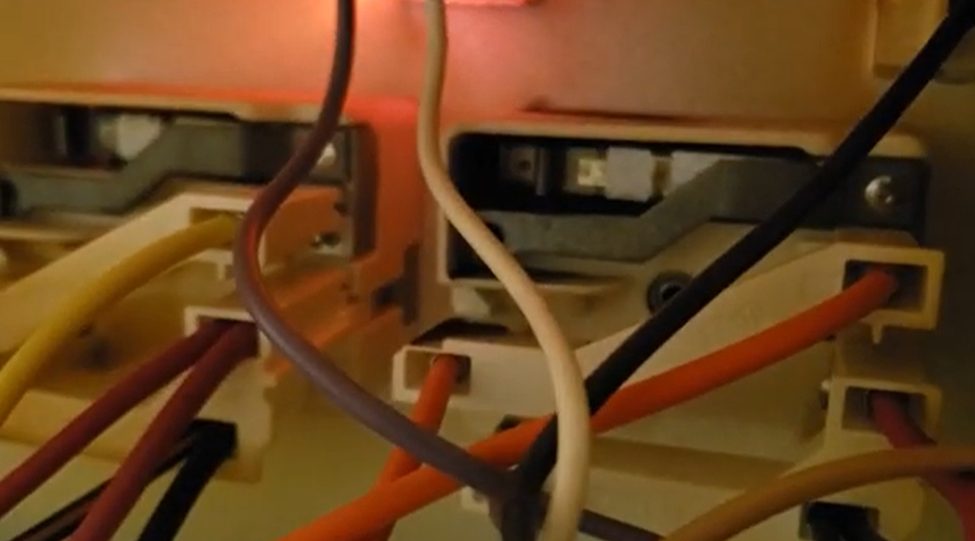
Power surges are sudden electricity blasts that flow through a device’s system.
Similar to the occasion above, power surges cause thermal expansions of the stove’s materials. That, along with the power surge itself, can cause a clicking noise.
5. Damaged Burners
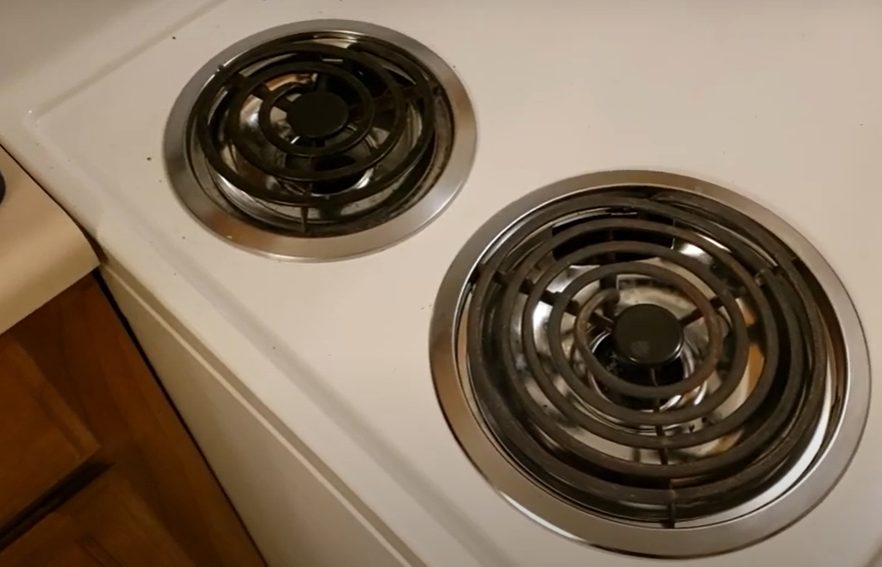
Coils receive electricity to heat up, regulated by the spark ignition switch.
When the burners get damaged, their ability to keep heating up begins to decline. In that case, the heat starts to build up inside the system, creating clicking noises.
To stop the clicking sounds and prevent further hazards, you need to replace the burners.
6. Liquid Elements Stuck Inside the Burners’ System
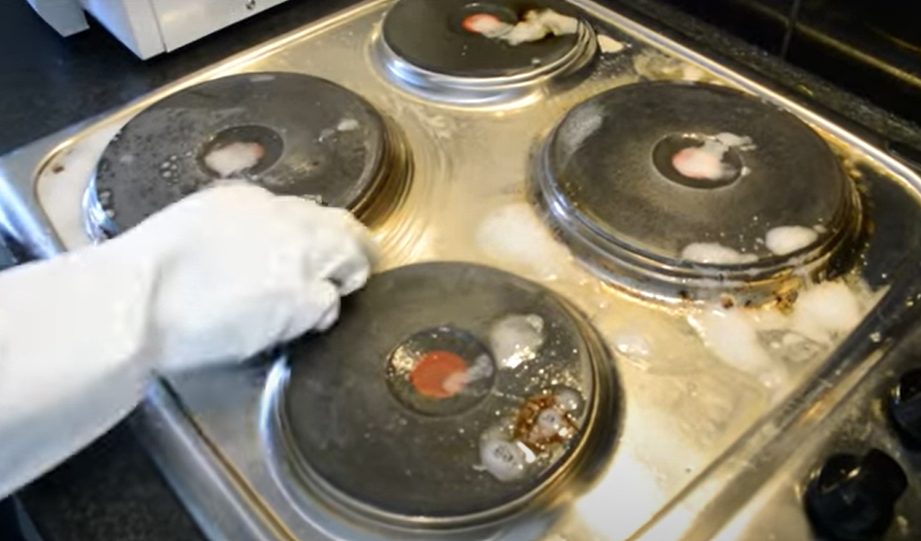
It is crucial to regularly clean your electric stove.
Nevertheless, sometimes liquid that is used for cleaning remains inside the coils’ mechanism. When the stove is turned on, a clicking sound might be heard. The case is that the heat makes the liquid evaporate.
You may leave it as it is, until it fully evaporates, or clean the coils with a dry tissue or towel.
7. Worn Top
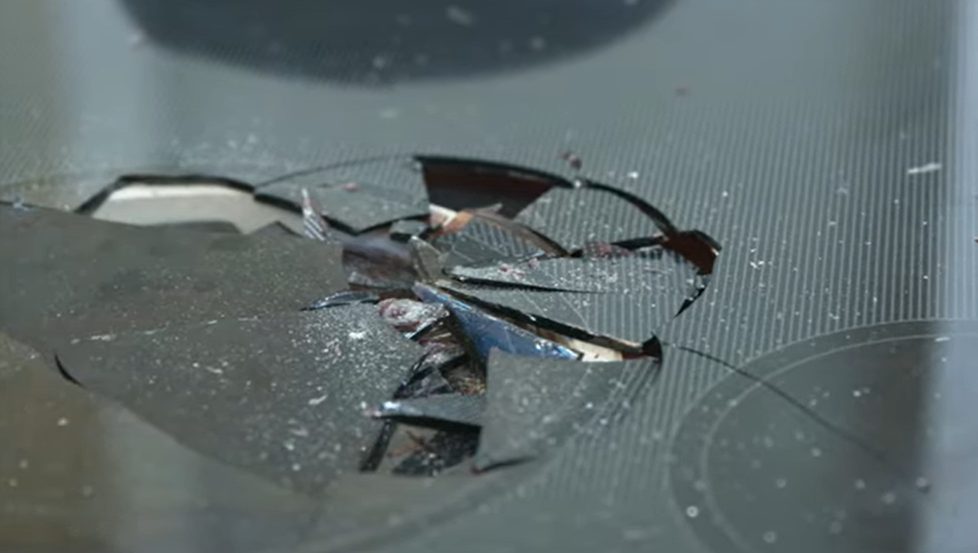
Most electric stoves have a component that covers the burners.
The tops can wear out over time due to heavy usage or hitting. The clicking sounds might be heard while the stove is in use since the cracks will react to the heat produced in the burners.
For example, a glass top might produce clicking sounds because it has been cracked or is about to break.
8. Misplacing of Components
Electric stoves are built to function when assembled in a certain way.
While cleaning, one might disarrange the order of the burners or other components of the heating part of the stove. In that case, the system will produce a clicking noise, since the units’ compatibility is compromised.
That is why one should not interfere with the components of the stove’s system except while cleaning.
9. Rusting
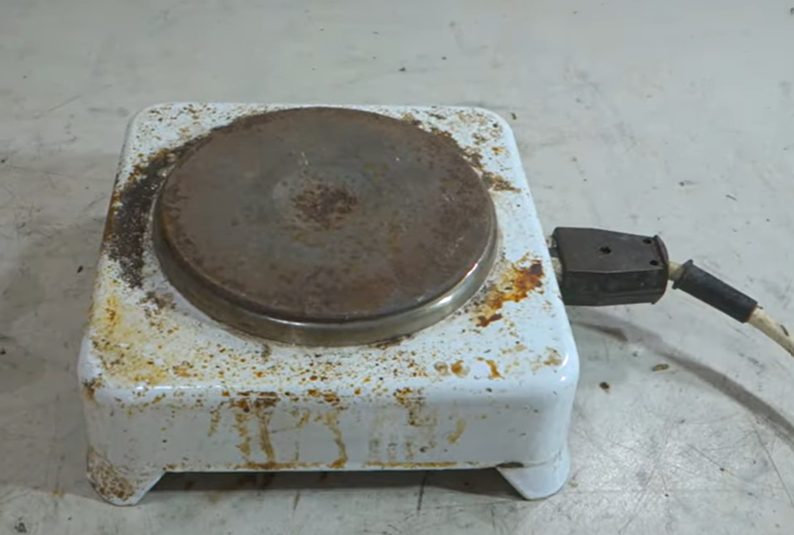
Burners can be manufactured either with ceramic components or iron.
In the case of iron burners, when contacted with water, they start to rust. That happens because the water on the iron reacts with air molecules, thus altering the surface of the metal. The rust begins to damage the burners, so a clicking sound can be heard once they start to struggle to heat up.
Although you cannot prevent the act of rusting as a phenomenon, you can prolong your burners’ life by wiping at once any amount of water spilled on them.
Tips
In general, electric stoves can last for up to 10 to 15 years.
If you hear clicking sounds and your stove is somewhat new, then the issue might not be that severe. However, it is important to consult an appliance repair technician to ensure that you are safe.
You can also set up service sessions to test the stove’s condition every few years.
Take a look at some of our related articles below.
- What happens if you leave electric stove on
- Can electric stoves catch fire
- What size wire for electric stove
Video References
AMRE Supply
Kyle Hailey
cleanwelllondon
HGTV
peChoO
